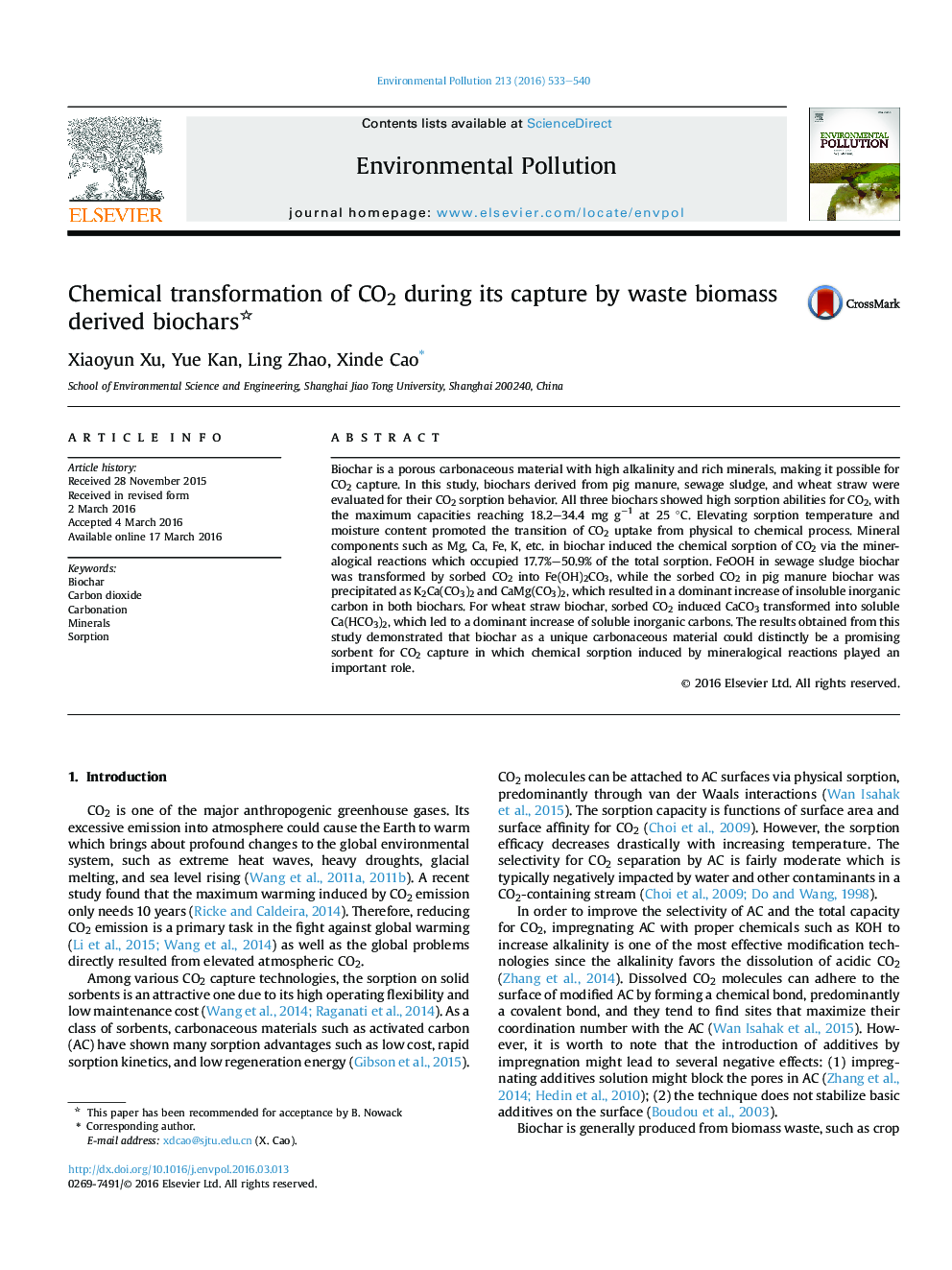| Article ID | Journal | Published Year | Pages | File Type |
|---|---|---|---|---|
| 6314937 | Environmental Pollution | 2016 | 8 Pages |
â¢Biochar is distinctly effective for CO2 capture through both physical and chemical processes.â¢Elevating temperature and moisture enhance chemisorption of CO2 by biochar.â¢Rich minerals and high alkalinity of biochar favor CO2 chemisorption.â¢Mineralogical reactions in biochar promote CO2 transformation into carbonates.
Biochar is a porous carbonaceous material with high alkalinity and rich minerals, making it possible for CO2 capture. In this study, biochars derived from pig manure, sewage sludge, and wheat straw were evaluated for their CO2 sorption behavior. All three biochars showed high sorption abilities for CO2, with the maximum capacities reaching 18.2-34.4 mg gâ1 at 25 °C. Elevating sorption temperature and moisture content promoted the transition of CO2 uptake from physical to chemical process. Mineral components such as Mg, Ca, Fe, K, etc. in biochar induced the chemical sorption of CO2 via the mineralogical reactions which occupied 17.7%-50.9% of the total sorption. FeOOH in sewage sludge biochar was transformed by sorbed CO2 into Fe(OH)2CO3, while the sorbed CO2 in pig manure biochar was precipitated as K2Ca(CO3)2 and CaMg(CO3)2, which resulted in a dominant increase of insoluble inorganic carbon in both biochars. For wheat straw biochar, sorbed CO2 induced CaCO3 transformed into soluble Ca(HCO3)2, which led to a dominant increase of soluble inorganic carbons. The results obtained from this study demonstrated that biochar as a unique carbonaceous material could distinctly be a promising sorbent for CO2 capture in which chemical sorption induced by mineralogical reactions played an important role.
Graphical abstractDownload high-res image (310KB)Download full-size image
